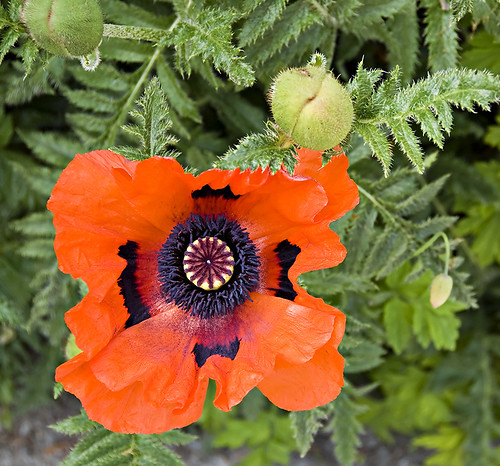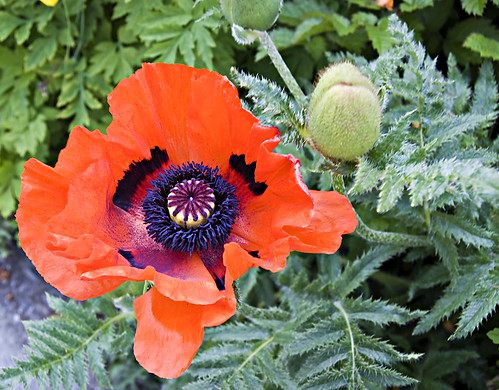George Bush's War-that-he-hopes-we-all-forget-about is still raging, 6 years later. Jon Lee Anderson spends some time in Afghanistan (avoiding the Taliban and dodging their bullets), and files an interesting report. The U.S. cowboy style is at odds with the other countries who maintain a military presence in Afghanistan, and of course, the poppy eradication is poorly implemented. I don't think one can fault farmers for growing crops that yield $700 an acre vs. $33 an acre for wheat. The U.S. often destroys every crop, and slowly makes more and more enemies among the peasants and farmers and their families.

The Taliban’s Opium War:
In the main square in Tirin Kot, the capital of Uruzgan Province, in central Afghanistan, a large billboard shows a human skeleton being hanged. The rope is not a normal gallows rope but the stem of an opium poppy. .... Doug Wankel walked up to an angry-looking farmer who was watching his field being destroyed and asked him, through an interpreter named Nazeem, how much he got for his opium. Twenty-one thousand Pakistani rupees for a four-kilo package, the farmer said, and he harvested three to four kilos per jirib (a local land measurement equivalent to about half an acre). He added, “I get only a thousand rupees per jirib of wheat, so I’m obliged to grow poppies.” That comes to about thirty-three dollars from an acre of wheat, and between five hundred and seven hundred dollars from an acre of poppies. In Uruzgan, the opium was sold to middlemen who then smuggled it out of Afghanistan to Pakistan or Iran.“How long have you been growing poppies?” Wankel asked him.
The farmer looked surprised. “When I was born, I saw the poppies,” he said.
When we were ready to move on, the farmer said, as if to be polite, “Thank you—but I can’t really thank you, because you haven’t destroyed just my poppies but my wheat, too.” He pointed to where A.T.V.s had driven through a wheat patch. Wankel apologized, then commented that it was only one small section. “But you have also damaged my watermelons,” the farmer insisted, pointing to another part of the field. “Now I will have nothing left.”
Wankel turned away. As we walked on, the farmer called out, “Are you destroying all the poppies or just my field?”About a dozen men and boys gathered on a low dirt wall next to another field and watched the proceedings impassively. A young girl wiped away tears with her scarf and yelled angrily at a policeman. Nearby, several Americans were resting in the shade of some mulberry trees, talking to each other. One of the local men, who wore a black turban, said to them, “We’re poor—we’re not with the Taliban or anything. You’ve made a big mistake. Now we’ll grow more against you.” He added, “I have to feed my children.”
Nazeem, the translator, spoke to the men in Pashto, and recited passages from the Koran proscribing opium. One of the men retorted, “The Koran also says to fight against kafirs”—that is, infidels. His companions stirred and nodded.
Read the whole thing here
Technorati Tags: Afghanistan, Dauphin, Drug_War_insanity, drugs, military, opium

